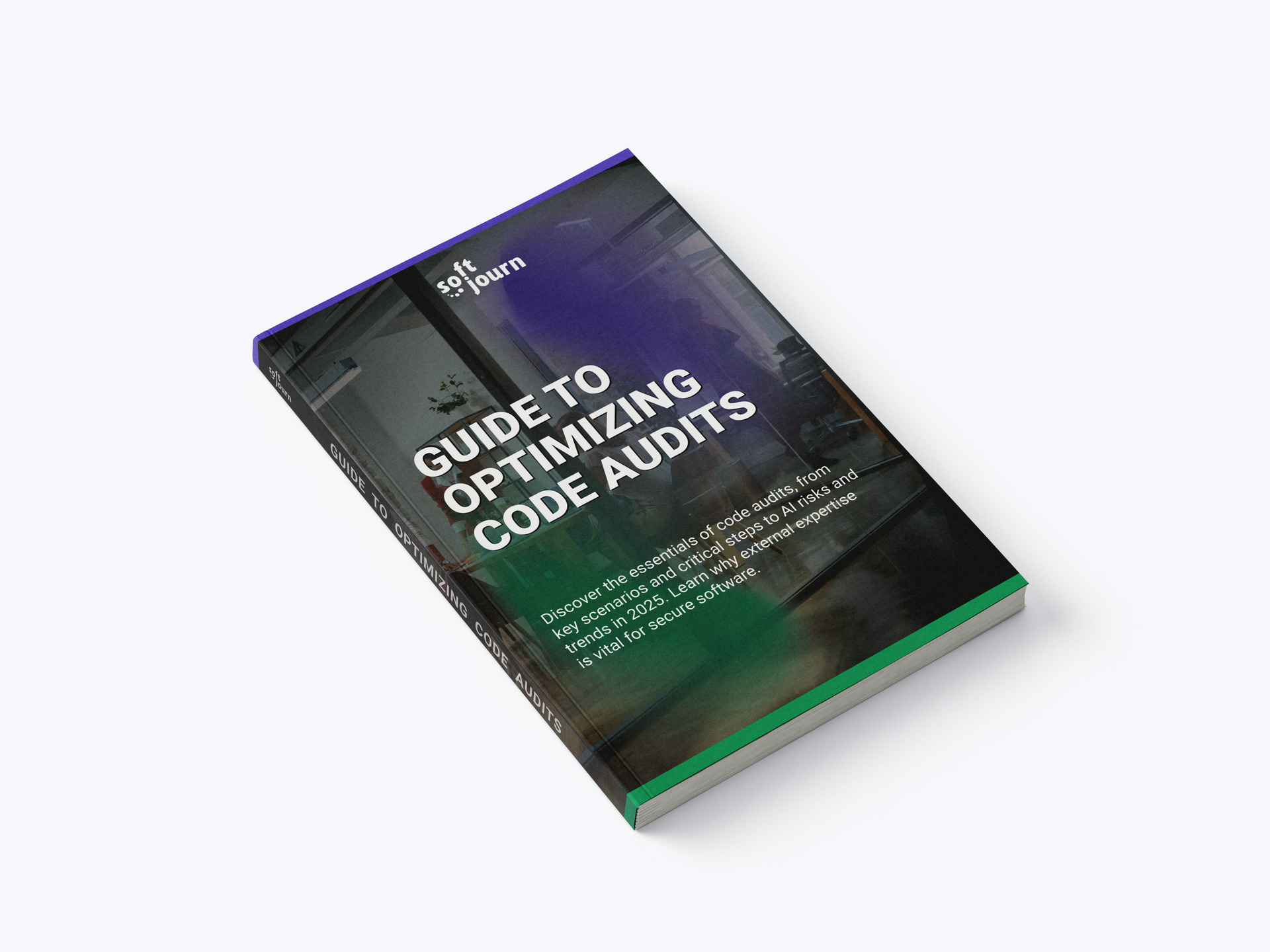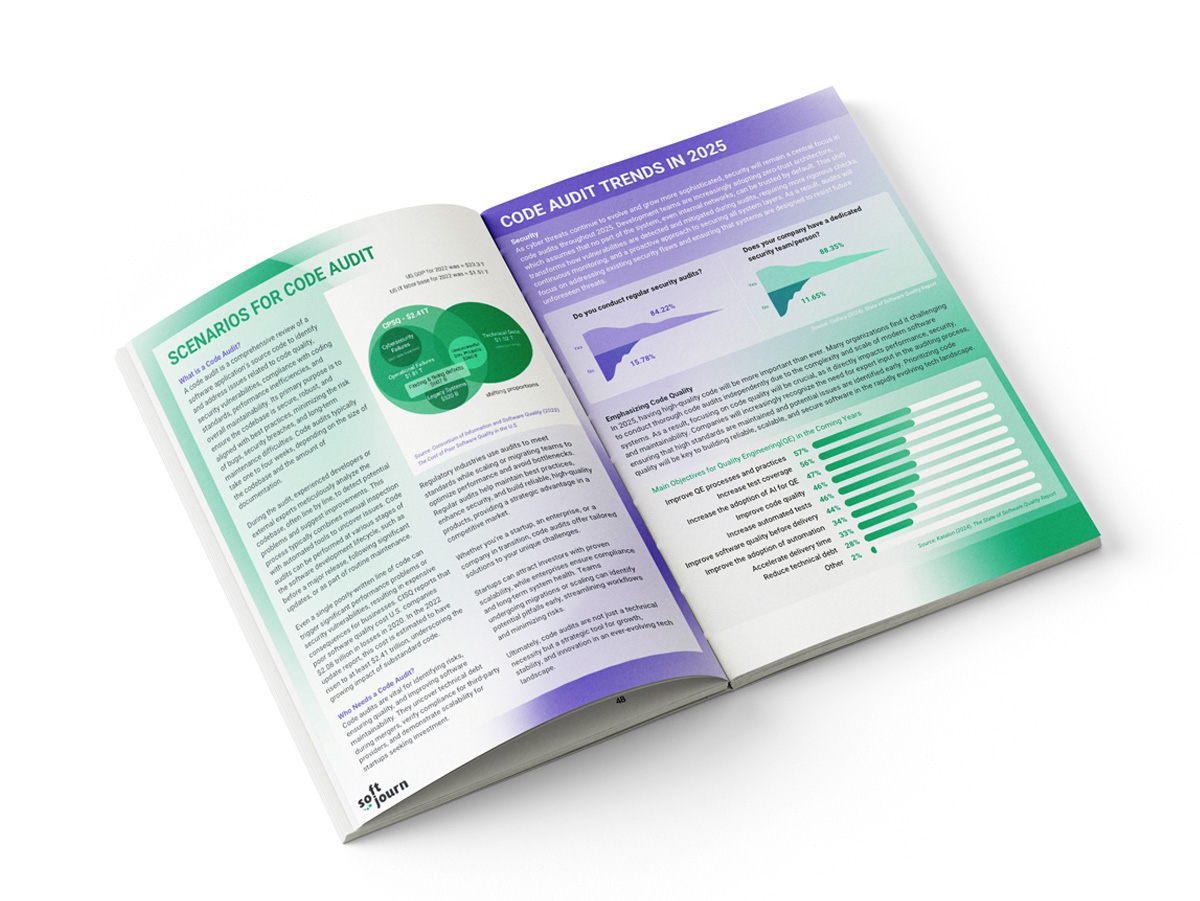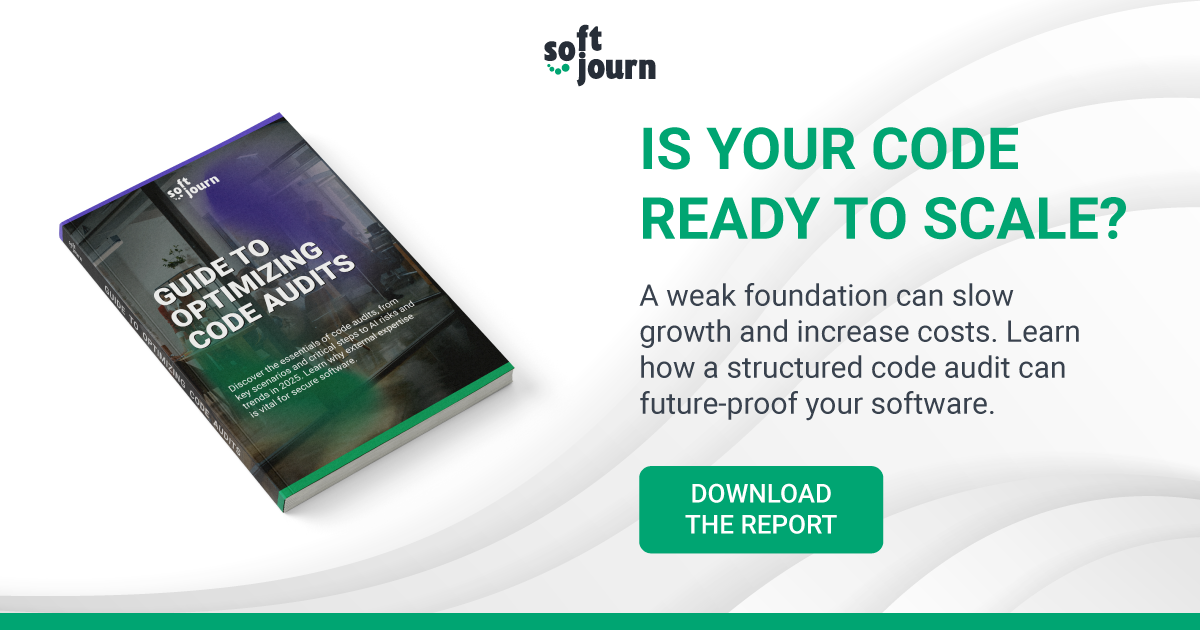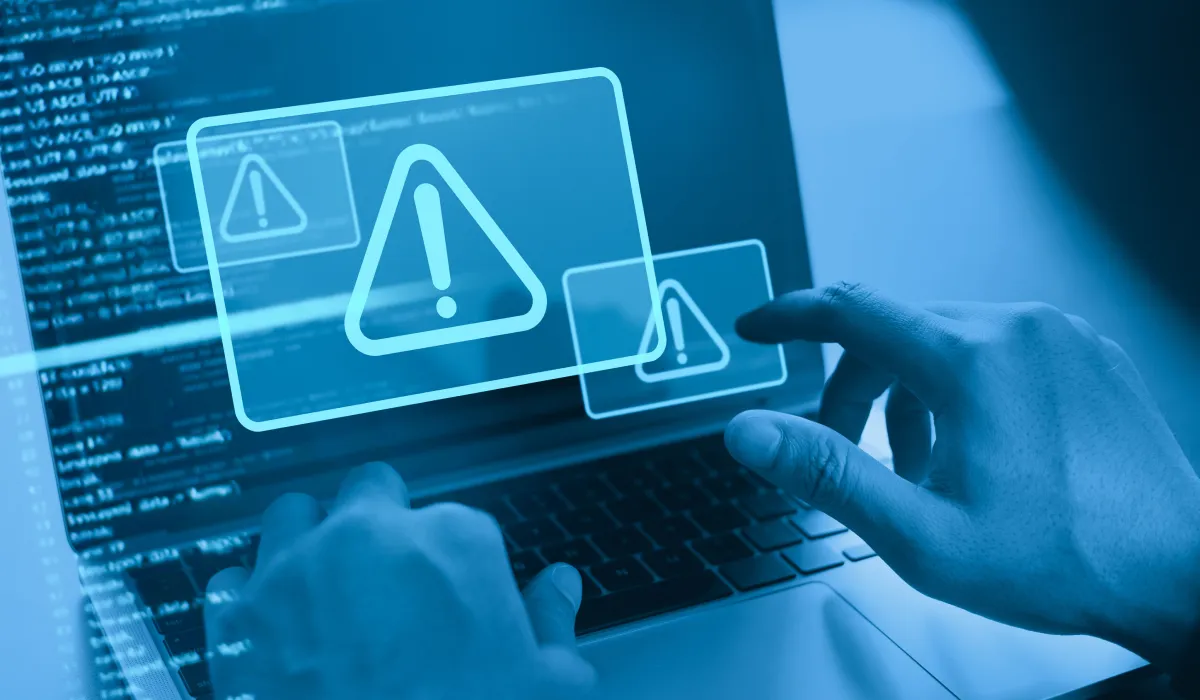Hidden flaws in your code can lead to unexpected downtime, security breaches, or compliance failures. As software complexity increases, a single overlooked issue can cause massive disruptions.
That’s why regular code audits are no longer optional—they’re essential for ensuring quality, security, and long-term scalability.
Whether you’re preparing for an investment round, merging with another company, or improving technical debt, a well-executed code audit provides critical insights into your software’s health.
What Is a Code Audit?
A code audit is an in-depth review of your software’s source code, designed to uncover hidden risks before they become costly problems. More than just a routine check, an audit can help identify security vulnerabilities, improve performance, and ensure compliance with industry regulations like GDPR, HIPAA, and PCI-DSS.
It also plays a crucial role in reducing technical debt, making your software more scalable and maintainable for future growth.
Common Scenarios for a Code Audit
A code audit is essential in many situations where software quality, security, or performance is a priority:
- Mergers & Acquisitions – Assess software integrity and technical debt before finalizing an acquisition.
- Third-Party Vendor Reviews – Verify that outsourced code meets security and performance standards.
- Startup Due Diligence Audits – Ensure a startup’s software is secure, scalable, and investment-ready before funding or acquisition.
- Regulatory Compliance – Ensure your software aligns with GDPR, HIPAA, PCI-DSS, and other industry regulations.
- Scaling & Cloud Migration – Evaluate if your system architecture can support increased traffic and cloud infrastructure.
- Security & Vulnerability Assessments – Identify and mitigate potential security risks before they lead to breaches.
- Technical Debt Reduction – Uncover outdated code and inefficiencies that could hinder future development.
The Code Audit Process: 6 Critical Steps
1. Planning & Scope Definition – Define what needs to be audited, so no critical areas are overlooked.
2. Data Collection – Gather documentation, infrastructure details, and dependencies to understand system architecture.
3. Code Review & Analysis – Identify security risks, inefficiencies, and architecture inconsistencies.
4. Security & Compliance Checks – Ensure your software meets regulatory requirements and industry best practices.
5. Performance Optimization – Detect slowdowns, inefficient queries, and scalability issues.
6. Reporting & Recommendations – Deliver a clear action plan for fixing problems and improving code quality.
A well-structured audit doesn’t just highlight problems; it provides actionable insights to improve code quality and prevent future risks.
Key Trends in Code Audits for 2026
The software development landscape is evolving, and code audits must adapt to new challenges. Here are some emerging trends shaping the future of code reviews:
- Shift-Left Audits – More companies are integrating code audits earlier in the development process, preventing costly rework later.
- AI-Powered Code Analysis – AI-driven tools are enhancing audits but require human oversight to avoid false positives and misinterpretations.
- DevSecOps Integration – Security is becoming an integral part of the development pipeline, making continuous auditing a best practice.
- Cloud-Native Security Reviews – As businesses migrate to the cloud, audits now include assessments of cloud infrastructure, APIs, and containerized environments.
- Compliance-Driven Audits – With increasing regulatory scrutiny, companies must conduct routine audits to maintain industry compliance.
- Automation in Code Reviews – Automated tools are improving efficiency, but manual review remains critical for assessing business logic and architectural soundness.
The Growing Role of AI in Code Audits
AI-powered tools are transforming code audits, offering faster scanning and pattern detection. However, AI comes with hidden risks, including false positives, over-optimization, and an inability to assess business logic effectively. While AI can enhance audits, human expertise remains essential for context-driven analysis.

Why Choose an External Code Audit?
Internal code reviews often miss deeper structural problems due to familiarity bias, making it difficult to spot inefficiencies and security gaps. A third-party code audit provides an unbiased, expert evaluation to uncover vulnerabilities, ensure scalability, and optimize performance without disrupting internal teams.
External auditors bring specialized expertise in security, compliance, and architecture, helping businesses proactively address risks and maintain high software standards.
Whether you're preparing for an investment, scaling operations, or improving software quality, an external audit offers critical insights that internal teams might overlook.
Why Code Audits Matter More Than Ever
As software landscapes evolve, routine code audits have become essential—not optional. Whether you're addressing security risks, preparing for a system upgrade, or optimizing for long-term scalability, a professional code audit uncovers hidden issues before they become costly problems.
Gain the clarity you need to strengthen your software’s security, performance, and maintainability—before issues impact your business.
Want to Dive Deeper?
If you're ready to prevent security risks and costly technical debt, download our free white paper with expert-backed strategies and actionable recommendations to improve code quality.
Softjourn’s research, combined with insights from over 90 sources, dives deep into the evolving landscape of code audits.
This white paper delivers practical recommendations and expert-backed strategies to help companies:
- Optimize code review processes to improve software quality
- Leverage automation & AI tools while avoiding common pitfalls
- Identify and reduce technical debt for long-term sustainability
- Enhance security & compliance to meet industry regulations
- Improve CI/CD pipeline integration for faster, more reliable deployments
This report explores the most common reasons companies need code audits, the key steps in an effective audit process, and the biggest challenges teams face when reviewing code quality. You’ll also gain insights into emerging trends, such as AI’s growing role in audits and best practices for integrating security into development workflows.
Whether you’re looking to improve compliance, reduce technical debt, or prepare for an acquisition, this guide provides expert-backed recommendations to make your code audit process more effective.
[Download the White Paper Now]



















